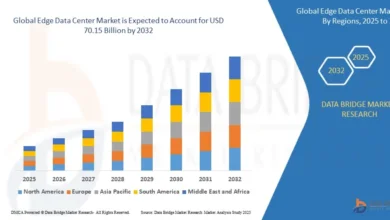Why GDPR Compliance is Crucial for U.S. Companies Handling EU Data

In these days’s global economic system, data crosses borders faster than ever earlier than. For U.S. Agencies working with European customers, one of the maximum vital duties is making sure records safety. The General Data Protection Regulation (GDPR), enacted by using the European Union in 2018, sets the gold standard for safeguarding private records. While it is an EU law, its scope extends to global groups that acquire, system, or store the information of EU residents. This approach corporations inside the United States can’t have the funds for to overlook the necessities of GDPR Compliance.
Understanding GDPR and Its Reach
The GDPR changed into designed to provide EU residents more manipulate over their non-public data. It defines strict guidelines for information series, utilization, garage, and switch. Any business—irrespective of place—that handles EU statistics ought to follow these necessities. This directly applies to American e-commerce corporations, SaaS companies, marketing groups, and financial institutions that engage with EU clients.
Non-compliance can cause intense outcomes. The regulation presents authorities the energy to levy fines of up to 20 million euros or four% of annual global sales, whichever is better. This degree of duty forces businesses out of doors Europe to prioritize data protection as part of their middle method.
Why GDPR Compliance Matters for U.S. Companies
1. Legal Obligations Cannot Be Ignored
Even although the U.S. Is not part of the EU, American businesses serving European clients are sure by means of GDPR. Ignoring it can cause legal disputes, penalties, and reputational damage.
2. Building Customer Trust
Data breaches and misuse have eroded patron trust international. Demonstrating GDPR Compliance reassures customers that their privateness rights are respected. This creates more potent purchaser relationships and a competitive benefit inside the marketplace.
3. Global Business Competitiveness
Many international contracts now consist of GDPR-associated clauses. Without aligning with those necessities, U.S. Groups risk dropping business possibilities. Being compliant signals professionalism and worldwide readiness.
Key Principles of GDPR
To align with the law, U.S. Groups need to recognize its seven core principles:
- Lawfulness, Fairness, and Transparency – Data must be collected and processed legally and with clarity.
- Purpose Limitation – Information have to best be used for the said functions.
- Data Minimization – Only essential facts need to be collected.
- Accuracy – Companies should hold private information updated.
- Storage Limitation – Data cannot be retained longer than vital.
- Integrity and Confidentiality – Proper security measures ought to guard information.
- Accountability – Businesses should show compliance with documented practices.
Steps for U.S. Companies to Achieve GDPR Readiness
Data Mapping and Audits
The first step is identifying what private data is amassed, in which it’s far saved, and who has access. Regular audits make sure compliance and find dangers.
Appointing a Data Protection Officer (DPO)
Companies processing massive amounts of EU records should appoint a DPO to oversee privacy guidelines and ensure rules are followed.
Updating Privacy Policies
Websites and packages must without a doubt provide an explanation for how statistics is gathered, why it is used, and the way lengthy it is going to be saved. Consent should be precise, knowledgeable, and freely given.
Implementing Security Controls
Encryption, access controls, and multi-aspect authentication are important in preventing information breaches. Companies should additionally put together incident response plans.
Managing Third-Party Vendors
GDPR calls for businesses to ensure that partners and providers also comply. This includes records processors, cloud carrier providers, and advertising groups.
Challenges U.S. Companies Face
Despite its importance, aligning with GDPR isn’t always continually smooth. Some commonplace challenges include:
- Cultural and Legal Differences – U.S. Companies may not be acquainted with strict EU privacy frameworks.
- High Compliance Costs – Smaller companies may warfare with the monetary funding required.
- Complex Data Transfers – Cross-border data flows often contain additional safeguards together with Standard Contractual Clauses (SCCs).
- Continuous Monitoring – GDPR isn’t always a one-time attempt. Businesses need to replace practices as generation and rules evolve.
Benefits Beyond Compliance
While many view GDPR as a regulatory burden, it actually creates several long-term advantages for U.S. companies.
Enhanced Reputation
Businesses that protect consumer privateness benefit a recognition for obligation and professionalism.
Stronger Security
The measures required for GDPR overlap with cybersecurity exceptional practices, decreasing the threat of breaches.
Better Data Management
Limiting pointless statistics collection streamlines operations and reduces storage expenses.
Future-Proofing for Other Laws
Many countries and U.S. States (like California’s CCPA) are introducing stricter facts privacy regulations. Preparing for GDPR puts corporations ahead of the curve.
Case Examples of Impact
E-trade Platforms
American on-line shops transport to Europe have to request specific consent for advertising and marketing emails and steady charge information. Without right measures, they face hefty fines.
SaaS Companies
Software providers presenting services to EU customers need clear records processing agreements and stable cloud environments. Transparency in coping with patron statistics regularly becomes a promoting point.
Marketing Agencies
Digital advertising and marketing companies targeting European audiences ought to attain consent for cookies and tracking gear. Non-compliance ought to bring about both criminal and patron loss.
Practical Tips for Businesses
- Conduct frequent threat checks.
- Train employees on information protection obligations.
- Regularly replace software and patch vulnerabilities.
- Document all compliance efforts to illustrate responsibility.
- Partner with specialists or legal experts for ongoing guidance.
The Future of Data Privacy and U.S. Businesses
The worldwide trend is transferring toward stronger records privateness rules. Even in the United States, several states are adopting GDPR-like laws. Businesses that embody those practices early function themselves as leaders in accountable data coping with.
Ultimately, GDPR Compliance isn’t always just about averting consequences. It’s about building sustainable trust, securing worldwide possibilities, and aligning with a future in which statistics privacy is non-negotiable.
Conclusion
For U.S. Groups, navigating the sector of international facts safety might also seem complicated, however the rewards are undeniable. Embracing GDPR Compliance helps businesses continue to be competitive, keep away from highly-priced fines, and earn purchaser trust. As statistics continues to power the digital economic system, the agencies that prioritize transparency, responsibility, and safety will thrive in worldwide markets.




